Year 2 Newbie Container Gardener- Need help with potting soil mix
angierainbow83
13 years ago
Related Stories
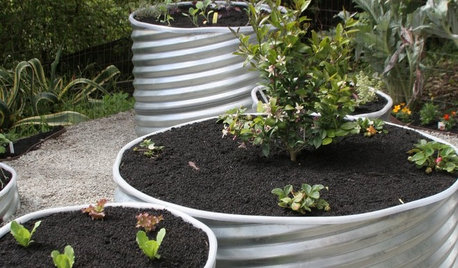
CONTAINER GARDENSContainer Gardening Basics: The Dirt on Soil
Learn the types of potting soil available and the best mixes to help your containers thrive
Full Story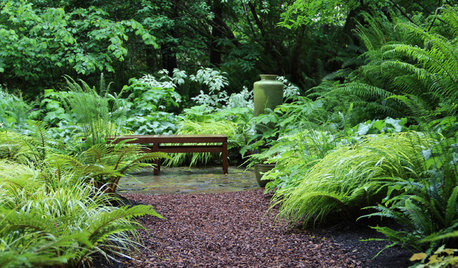
GARDENING GUIDES10 Solutions for Soggy Soil
If a too-wet garden is raining on your parade, try these water-loving plants and other ideas for handling all of that H2O
Full Story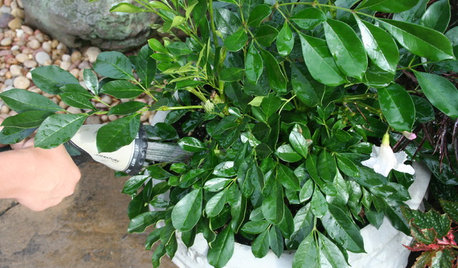
CONTAINER GARDENSContainer Garden Basics: How and When to Water Potted Plants
Confused about soil moisture, the best time to water and what watering device to use? This guide can help
Full Story
FARM YOUR YARDHow to Get Good Soil for Your Edible Garden
The nutrients in your soil feed the plants that feed you. Here are tips on getting it right — just in time for planting season
Full Story
GARDENING GUIDESHow to Stop Worrying and Start Loving Clay Soil
Clay has many more benefits than you might imagine
Full Story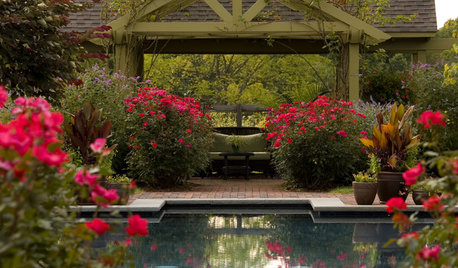
SPRING GARDENINGHow to Grow a Rose Garden in Pots
Everything can come up roses, even without a plot of soil in sight. This step-by-step guide to growing roses in containers shows you how
Full Story
FARM YOUR YARDHow to Grow Vegetables in Containers
Get glorious vegetables and fruits on your patio with a pro’s guidance — including his personal recipe for potting mix
Full Story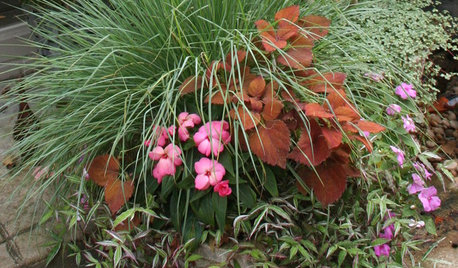
CONTAINER GARDENSContainer Garden Basics: Mix Textures to Catch the Eye
A mix of textures makes for potted gardens where each plant has a special role to play
Full Story
GARDENING GUIDESThe Poop Scoop: Enrich Your Soil With Good Old Manure
Get over the ick factor already — this natural super-ingredient for soil has so many benefits, you'll wonder why you ever went chemical
Full Story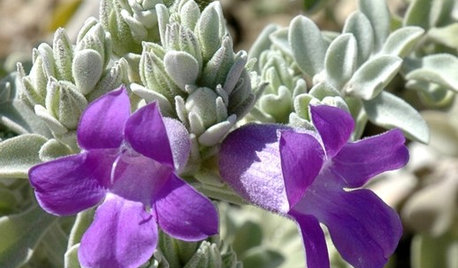
GARDENING GUIDESGreat Design Plant: Try Blue Bells for Blooms in Dry Soil
This shrub’s violet-blue flowers and silvery foliage brighten low-water gardens all year long
Full Story





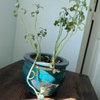
jodik_gw
tapla (mid-Michigan, USDA z5b-6a)
Related Professionals
Elwood Landscape Architects & Landscape Designers · Saint Louis Park Landscape Architects & Landscape Designers · West Chester Landscape Architects & Landscape Designers · Washington Landscape Architects & Landscape Designers · Goodlettsville Landscape Contractors · Milton Landscape Contractors · Reedley Landscape Contractors · Sun City Center Landscape Contractors · Waldorf Landscape Contractors · West Palm Beach Landscape Contractors · Moorpark Solar Energy Systems · 45056 Window Contractors · Jupiter Window Contractors · Payson Window Contractors · Cayce Fence Contractorsligreenthumb
jane__ny
ykerzner